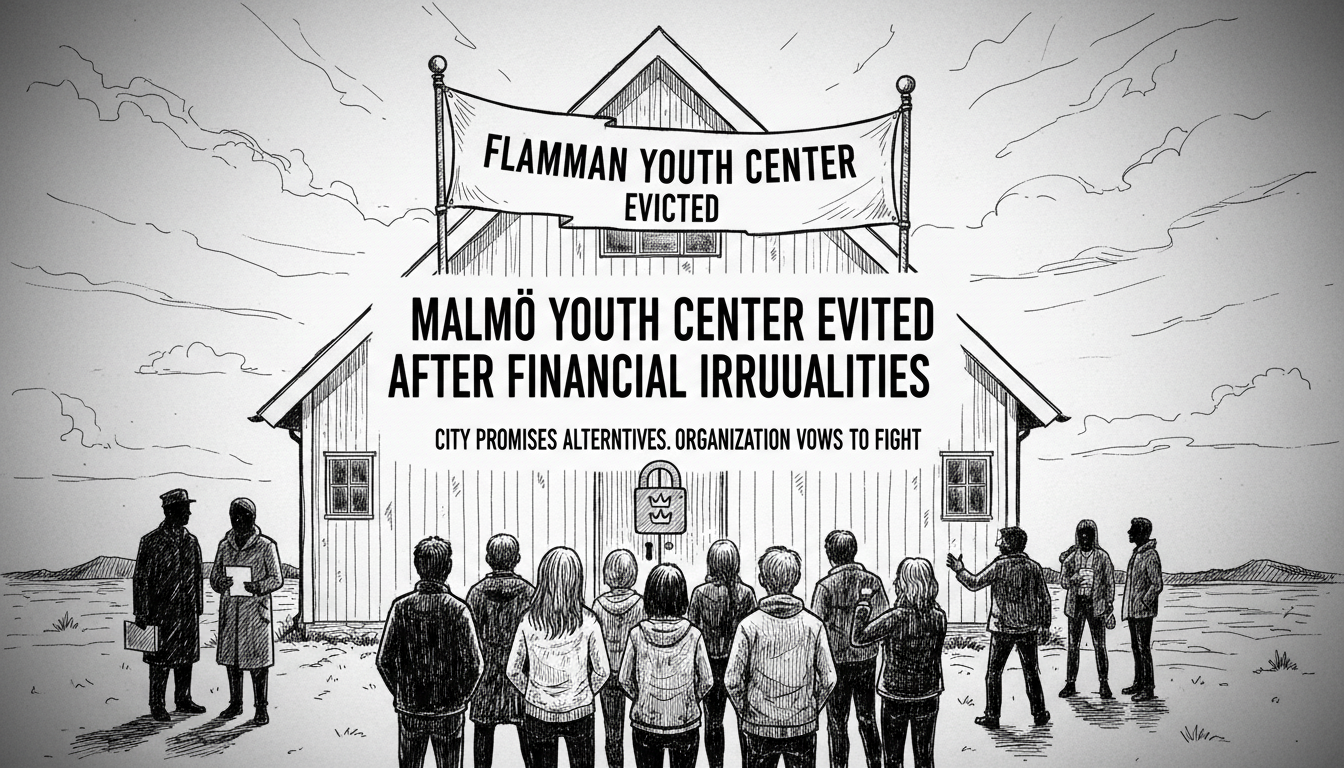Malmö city officials have terminated funding and ordered the eviction of Flamman youth center following financial mismanagement discoveries. The center served the Kroksbäck neighborhood for 28 years before losing its municipal support.
City committee chair Sanna Axelsson defended the decision in a statement. She emphasized that all organizations must follow financial rules consistently. The action comes after revelations about Flamman's management receiving million-krona salaries and manipulating accounting records.
Axelsson stated that proper financial management remains non-negotiable for receiving city funding. She explained that economic order must be maintained for all associations receiving public money.
Flamman's operational manager Rafi Farouq confirmed they will challenge the eviction decision. He acknowledged the organization previously used problematic salary models but claimed they addressed these issues before media attention began. Farouq expressed frustration that the city now evicts them after nearly three decades of service.
The youth center regularly hosted up to 600 children and teenagers each evening in Kroksbäck. This working-class neighborhood has historically relied on such facilities to provide safe spaces for young people after school hours.
City officials maintain they have prepared for this transition. Axelsson confirmed extended hours at other youth centers and additional staff deployed throughout the area. She stressed the priority remains capturing children who need both a physical space and responsible adult supervision.
This case highlights the delicate balance Swedish municipalities face between supporting vital community services and ensuring proper financial oversight. Malmö's approach demonstrates zero tolerance for financial irregularities, even when dealing with long-established community organizations.
The eviction raises questions about how cities should handle historical mismanagement in essential services. Some community advocates worry that immediate termination punishes neighborhood children for administrative failures. Others argue consistent financial rules must apply equally to all organizations receiving public funds.
Similar conflicts have emerged across Swedish municipalities in recent years as cities tighten financial controls. The Flamman case represents a growing trend where cities prioritize financial accountability over organizational history when making funding decisions.
What happens next for Kroksbäck's youth remains uncertain. While the city promises alternative arrangements, community members express concern about losing a familiar neighborhood institution. The transition period will test whether distributed services can effectively replace a centralized youth center that built trust over generations.

